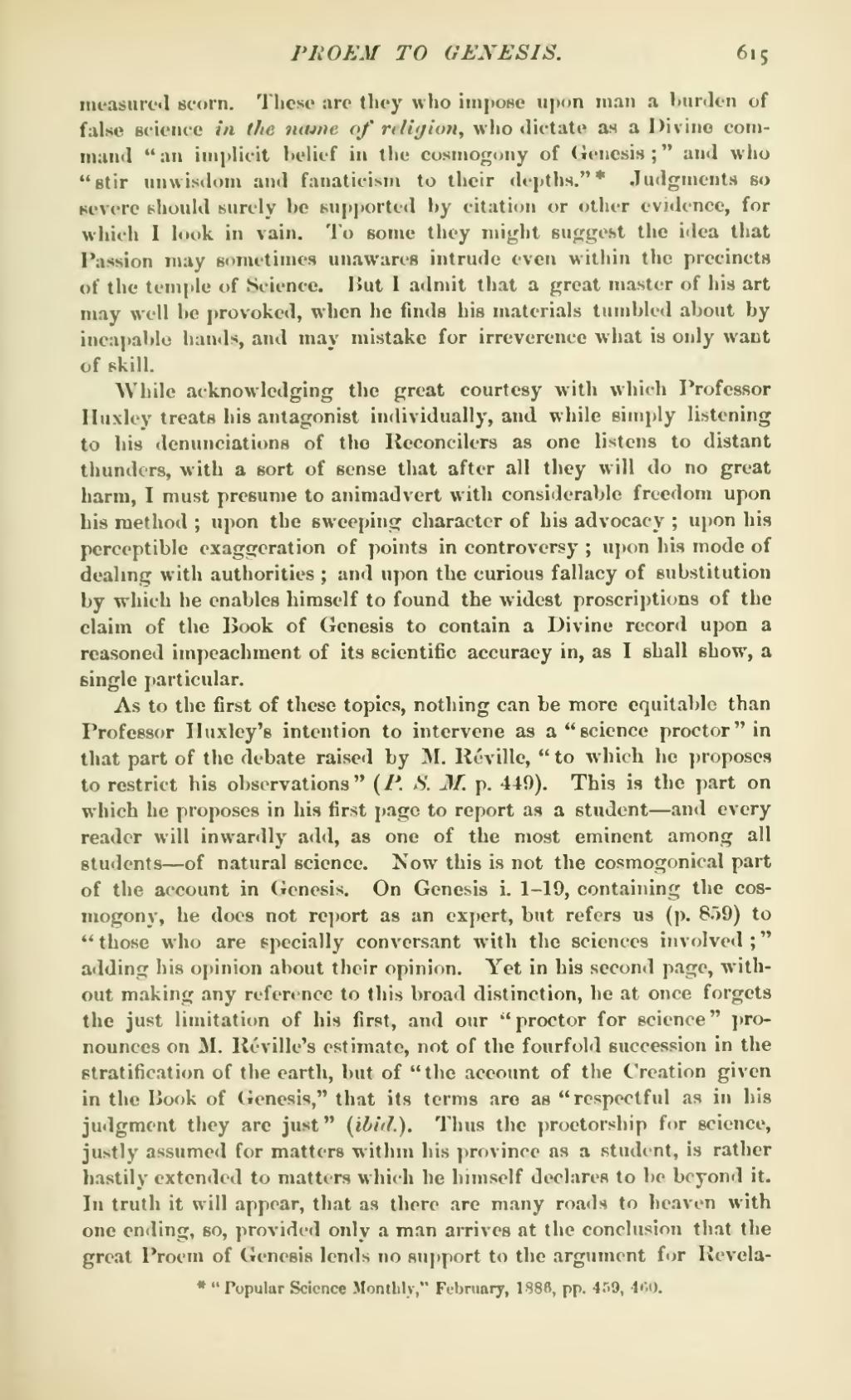measured scorn. These are they who impose upon man a burden of false science in the name of religion, who dictate as a Divine command "an implicit belief in the cosmogony of Genesis;" and who "stir unwisdom and fanaticism to their depths."[1] Judgments so severe should surely be supported by citation or other evidence, for which 1 look in vain. To some they might suggest the idea that Passion may sometimes unawares intrude even within the precincts of the temple of Science. But 1 admit that a great master of his art may well be provoked, when he finds his materials tumbled about by incapable hands, and may mistake for irreverence what is only want of skill.
While acknowledging the great courtesy with which Professor Huxley treats his antagonist individually, and while simply listening to his denunciations of the Reconcilers as one listens to distant thunders, with a sort of sense that after all they will do no great harm, I must presume to animadvert with considerable freedom upon his method; upon the sweeping character of his advocacy; upon his perceptible exaggeration of points in controversy; upon his mode of dealing with authorities; and upon the curious fallacy of substitution by which he enables himself to found the widest proscriptions of the claim of the Book of Genesis to contain a Divine record upon a reasoned impeachment of its scientific accuracy in, as I shall show, a single particular.
As to the first of these topics, nothing can be more equitable than Professor Huxley's intention to intervene as a "science proctor" in that part of the debate raised by M. Réville, "to which he proposes to restrict his observations" (P. S. M. p. 449). This is the part on which he proposes in his first page to report as a student—and every reader will inwardly add, as one of the most eminent among all students—of natural science. Now this is not the cosmogonical part of the account in Genesis. On Genesis i. 1-19, containing the cosmogony, he does not report as an expert, but refers us (p. 859) to "those who are specially conversant with the sciences involved;" adding his opinion about their opinion. Yet in his second page, without making any reference to this broad distinction, he at once forgets the just limitation of his first, and our "proctor for science" pronounces on M. Réville's estimate, not of the fourfold succession in the stratification of the earth, but of "the account of the Creation given in the Hook of Genesis," that its terms are as "respectful as in his judgment they arc just" (ibid.). Thus the proctorship for science, justly assumed for matters within his province as a student, is rather hastily extended to matters which he himself declares to be beyond it. In truth it will appear, that as there are many roads to heaven with one ending, so, provided only a man arrives at the conclusion that the great Proem of Genesis lends no support to the argument for Revela-
- ↑ "Popular Science Monthly," February, 1886, pp. 459, 460.

